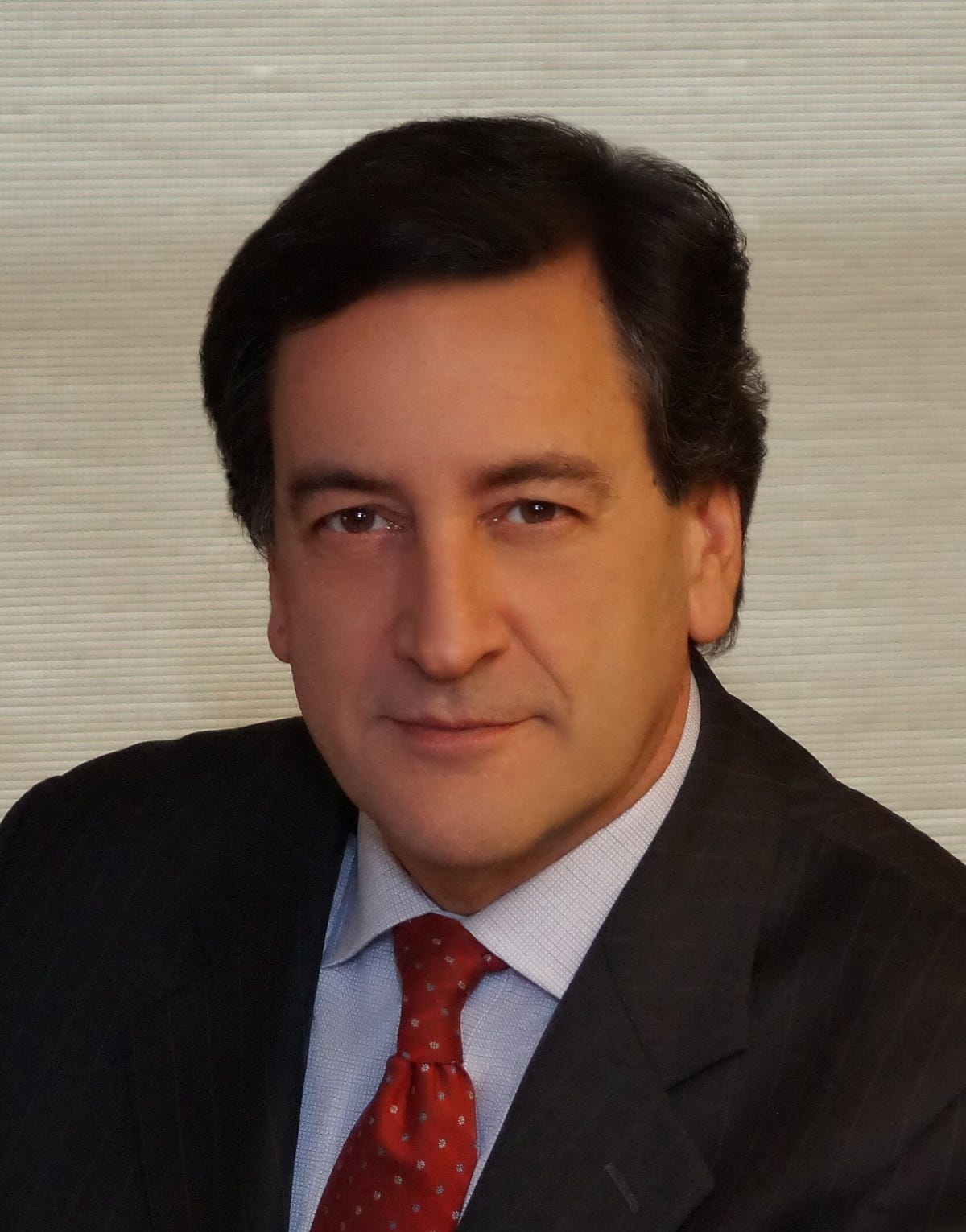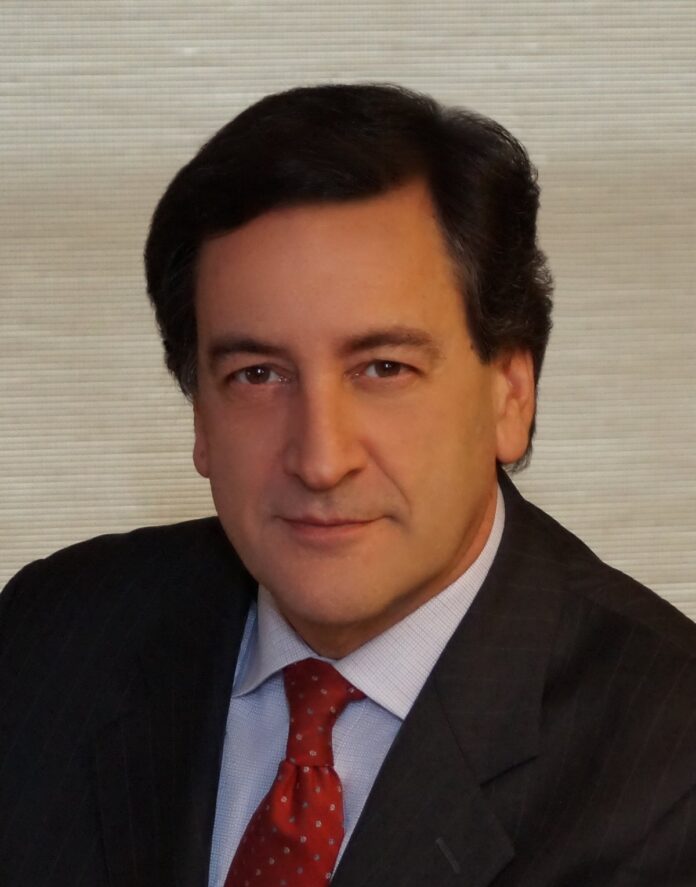Social Impact Heroes: Charles J. Fuschillo, Jr., President and CEO of the Alzheimer’s Foundation of America (AFA) is leading a movement to help families affected by Alzheimer’s disease

I had the pleasure of interviewing Charles J. Fuschillo, Jr., President and CEO of the Alzheimer’s Foundation of America (AFA). AFA is a national nonprofit organization whose mission is to provide support, services and education to individuals, families and caregivers affected by Alzheimer’s disease and related dementias nationwide, and fund research for better treatment and a cure.
Thank you for much for doing this with us! Can you tell us a story about what brought you to this specific career path?
Community service was something my family has always valued. Growing up, my parents were very active in our community; my father was an elected official and president of our little league. My mother was executive director of the Chamber of Commerce. They instilled in me the importance of giving back and making the world a better place. Throughout my career, I’ve been fortunate to be in a position to do that. Prior to joining AFA in 2014, I served nearly 16 years as a New York State Senator, where I authored more than 200 state laws. Before that, I was the Chief Operating Officer of a nonprofit family service agency which served people throughout New York City and Long Island. In my mind, there is no greater way to make a living than by helping people, and I’m grateful that I’m able to do that every day at AFA.
Can you share the most interesting story that happened to you since you began leading your company?
Shortly after I began my time at AFA, I met a family, a husband and wife with two young children, who were dealing with Alzheimer’s disease. The husband was diagnosed with Alzheimer’s in his early 30’s. So often, people think of Alzheimer’s disease as something that only affects senior citizens, but that’s not the reality; Alzheimer’s impacts people as young as their 30s or 40s. Hearing the challenges they were going through was extraordinarily impactful; while other kids were coming home from school and playing with their friends, this family’s children were actively helping care for their dad. What this family is going through is heartbreaking, but seeing them come together out of love to help and support one another is incredibly inspiring. It shows that you are never too young to learn how to become a caregiver and make a difference in someone’s life. And it fuels our fire to help them, and everyone else dealing with this terrible disease, in any way we can.
Can you describe how your organization is making a significant social impact?
AFA is a resource for people in their time of need. When Alzheimer’s enters a family’s life, the first question is often “what do we do now?” We’re here to help answer that question and be there for them for as long as Alzheimer’s is a part of their life.
We have a National Toll-Free Helpline (866–232–8484), staffed entirely by licensed social workers, which provides services seven days a week to thousands of individuals on an annual basis. Our National Memory Screening Program has provided free, confidential memory screenings to more than 5 million people to date. And our Educating America Tour travels across the country to connect people with information about Alzheimer’s disease, caregiving, support services and more.
These are just a few of the ways we help the more than 5 million Americans living with Alzheimer’s disease. But we’re continually trying to do more, because the need is growing.
Wow. Can you tell me a story about a particular individual who was impacted by this cause?
Millions of Americans have their own personal story about Alzheimer’s disease. We have a Teen Scholarship Essay Contest each year where high school seniors write about how Alzheimer’s has affected their lives. I’ve read thousands of entries, and every one of them has impacted me. By the end of each one, you almost feel like you know their loved one, before and after their Alzheimer’s diagnosis, and you feel some of what the student has been feeling, both good and bad. It’s incredibly moving.
For me, one of the most impactful Alzheimer’s stories is that of our Founder and Board Chairman, Bert Brodsky. His mother lived with Alzheimer’s disease from 1980–1992. At that time, he really felt like there was nowhere to turn with questions, no resources for support and very little regard for how the disease affects not just the individual, but his or her family as well. He talks openly about how difficult it was; seeing the effects the disease had on her and the physical and emotional stress of dealing with it. That’s why he created AFA; to be the place people can turn to for help and support.

Are there three things the community/society/politicians can do to help you address the root of the problem you are trying to solve?
Raise awareness, invest in care and a cure, and be proactive about your brain health.
Education and knowledge are tools of empowerment. A family caregiver once told me that when their loved one was diagnosed with Alzheimer’s disease, she felt like Dorothy in the Wizard of Oz; swept up in a whirlwind out of the blue and dropped into an unknown world totally unprepared. Handling the challenges became easier as she learned more. Heightening understanding of both the problem and the resources available to help deal with it makes an enormous difference.
Additional funding is something that’s necessary. Alzheimer’s disease is the sixth leading cause of death in the United States, and the only one in the top 10 without a cure. Scientists are actively working toward a cure, but additional research is critical.
Finally, individuals can empower themselves by being proactive about their health. Lifestyle choices such as eating right, being active and staying socially engaged are all things that can help reduce your risk of Alzheimer’s. Memory screenings are also something everyone should get; they are quick and easy ways to check your brain. AFA has a National Memory Screening Program which has screened more than 5 million people across the country; visit our website at www.alzfdn.org to learn more about memory screenings and how to get one.
How do you define “Leadership”? Can you explain what you mean or give an example?
To me, leadership means bringing people together and helping them to succeed to achieve a common goal. Good leaders value their teammates and care about helping them grow and thrive. They take a vested interest in each member’s success, because all of that makes the team better. Successful leaders also work side by side with their team; they don’t demand things from others that they aren’t willing to do, or haven’t done, themselves.
Every one of my employees is valuable and plays a critical role in AFA’s operation. I want every one of them to succeed and grow professionally, because that success makes a difference in people’s lives; the more we are able to do, the more people we are able to help. We’ve seen tremendous growth in the programs and services we offer, and that’s all due to the great team we have here. We prioritize making our staff feel valued and appreciated, and we let them know that their work is touching lives across the country. That’s something of which they can, and should, be extremely proud.
You are a person of enormous influence. If you could inspire a movement that would bring the most amount of good to the most amount of people, what would that be? You never know what your idea can trigger.
We’re leading a movement right now, to help families affected by Alzheimer’s disease and find a cure that people around the world are hoping and praying for. We’re raising awareness, connecting people to services and funding research toward a cure. It’s incredibly rewarding work, but as I always tell my staff, what we do is never enough, because the need is continually growing. We hope others will join us however they can. Whether it’s time, money or effort, every bit of “giving” makes a difference. Everyone knows someone who has been impacted by this disease; even something as simple as sharing helpful information on social media to your friends can help.

Can you please give us your favorite “Life Lesson Quote”? Can you share how that was relevant to you in your life?
Dr. Martin Luther King, Jr. once said “Everyone can be great…because everyone can serve,” and I really believe that. I was raised in a family that truly believed in being active in the community and helping others, and it’s something I’ve incorporated into my personal and professional life. Everyone has the ability, in their own special way, to help others and give something back. All it takes is effort and heart. You never know how much something as simple as a kind word may mean to someone.
How can our readers follow you on social media?
Facebook: https://www.facebook.com/AlzheimersFoundationofAmerica/
Twitter: https://twitter.com/alzfdn
Instagram: https://www.instagram.com/alzfdn/
LinkedIn: https://www.linkedin.com/company/alzheimer’s-foundation-of-america/


